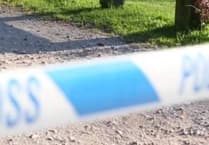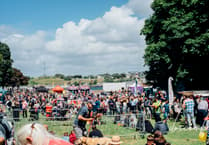WITH the sun out, longer days and school holidays soon upon us, residents and visitors to Devon and Cornwall are enjoying our wide-open spaces and our stunning coastal and rural scenery.
Sadly, as with other crime types, the summer months see an increase in rural crimes such as attacks on livestock by dogs, attacks on wildlife and theft and vandalism of farm and equine equipment.
The Police and Crime Commissioner for the Devon, Cornwall and the Isles of Scilly, Alison Hernandez, said one of her key roles is to seek the views of residents of the police force area and ensure that these views are reflected in policing and the services she commissions.
Recently Police and Crime Commissioners from around the South West decided to launch a survey to explore how crime is affecting rural communities.
In 2018, the National Rural Crime Network ran a similar survey which found that rural communities were living in fear of crime, unhappy with police and felt isolated and vulnerable.
Alison Hernandez explained: "In the five years since, a lot has changed and police forces across the region have shown an increased commitment to tackling rural crime.
"Forces have worked together to target criminals who cross each county's rural borders and to seize stolen goods and return items to their rightful owners.
"Rural parts of Devon, Cornwall and the Isles of Scilly enjoy some of the lowest crime rates in England and Wales, but some of the crime that does occur, like the theft of farm machinery such as quad bikes, has been linked to serious and deeply unpleasant gangs who are involved in other types of criminality.
"Defenceless animals are too often the victim of crimes of neglect in rural areas, where perpetrators perhaps feel they are out of sight and out of mind. For example, the huge increase in dog values during Covid lockdowns meant puppy farms sprung up in rural areas. Frequently these are run by people who want to make a quick buck rather than responsible breeders.
"Remote locations are also used by gangs involved in large-scale cannabis cultivation, which is linked to modern slavery, violence and all the misery associated with the drugs trade."
She continued: "Devon and Cornwall Police’s Rural Crime Team has done a fantastic job of getting out and meeting rural communities, reaching out to advise them of crime prevention tactics and to encourage reporting of crime, as far too much goes unreported.
"Low reporting rates, not just for rural crime, are a real frustration for me as they mean that the force cannot allocate resources based on sound information.
"Much of their work involves working with other agencies, like councils who have responsibility to enforce fly-tipping.
"Stopping rural crime requires those living in our countryside to be engaged with policing and to help each other through schemes like Farm Watch and Horse Watch, which create connected communities who can warn each other of suspicious activities.
"The South West Rural Crime Survey asks rural residents if they have been the victim of any crimes in the past 12 months as well as asking what rural crimes concern them the most. It takes just a few minutes to fill out, will run until September, and your responses will help the force respond to countryside issues and Police and Crime Commissioners to engage with Westminster to ensure South West police forces have the resources they require."
You can take the survey online at: https://www.surveymonkey.co.uk/r/RuralDC .
For information on the Devon and Cornwall Rural Crime team visit: www.devon-cornwall.police.uk/advice/advice-and-information/rc/rural-crime/ . Twitter users can keep up-to-date with the Team's activity by following @DCPoliceRural_D for Devon and @DCPoliceRural_C for Cornwall.
If you would like help setting up a Community Watch, Horse Watch or Farm Watch scheme in your community visit: www.devon-cornwall.police.uk/advice/advice-and-information/wsi/watch-schemes-initiatives .





Comments
This article has no comments yet. Be the first to leave a comment.